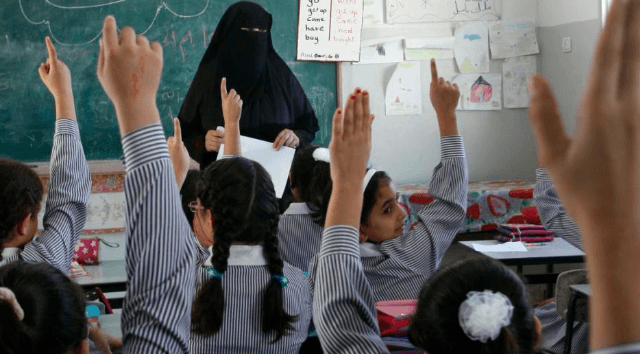LOL! New Iranian teacher criteria…. NO UGLY WOMEN! No beards, at least 20 teeth, no acne. My question is, in a burka, how do you know?

Iran has instituted a new policy for the hiring of teachers – ugly women need not apply! Not kidding.
If you are a female blessed with facial hair, fuhget about it! Likewise, an occasional zit. Moles? Beat it! Less than 20 teeth? NEXT!
Not exactly known for political correctness, Iran is clamping down on ugly teachers. In a document published by FARS, Iran’s education department issued a list of criteria for the hiring of teachers. The list covers all sorts of illnesses, but also includes criteria regarding physical appearance.
My first question is since Iran is uber-Islamic, how can you tell if a teacher wearing a burka is ugly?
Together with banning women with facial hair and acne sufferers, teachers should also not be cross-eyed, have unsightly facial moles, eczema or burn marks, reported Euro News, via The Sun.
The absurd rules, which also mentioned cancers and bladder stones, led to a backlash on social network sites.
Art teachers will be sacked for being “colourblind” and infertile female teachers are also banned.
Shahindokht Molaverdi, an adviser to the President Hassan Rouhani on citizen’s rights, promised that the list would be investigated.
A spokesman for the education department has now told the Tehran-based Etemad newspaper that measures specifically targeting women would be removed and the rest of the list reviewed, according to Euro News.
The FARS news agency pointed out that applicants spend more time on medical tests than they do on training, and urged the education department to be “more realistic”.
Journalist Omid Memarian highlighted on Twitter how renowned physicist Stephen Hawking would have been banned from teaching in Iran.
Another Iranian journalist Sara Omatali wrote: “In the Education Ministry’s medieval list, a thick accent and too much facial hair are considered an illness and a barrier for those willing to be hired as teachers. A clear violation of basic human rights.”
Human rights activist and former teacher Ahmad Medadi said: “The physical and mental conditions of a teacher have a direct impact on the education process, but these guidelines are a clear violation of citizens’ rights.”





